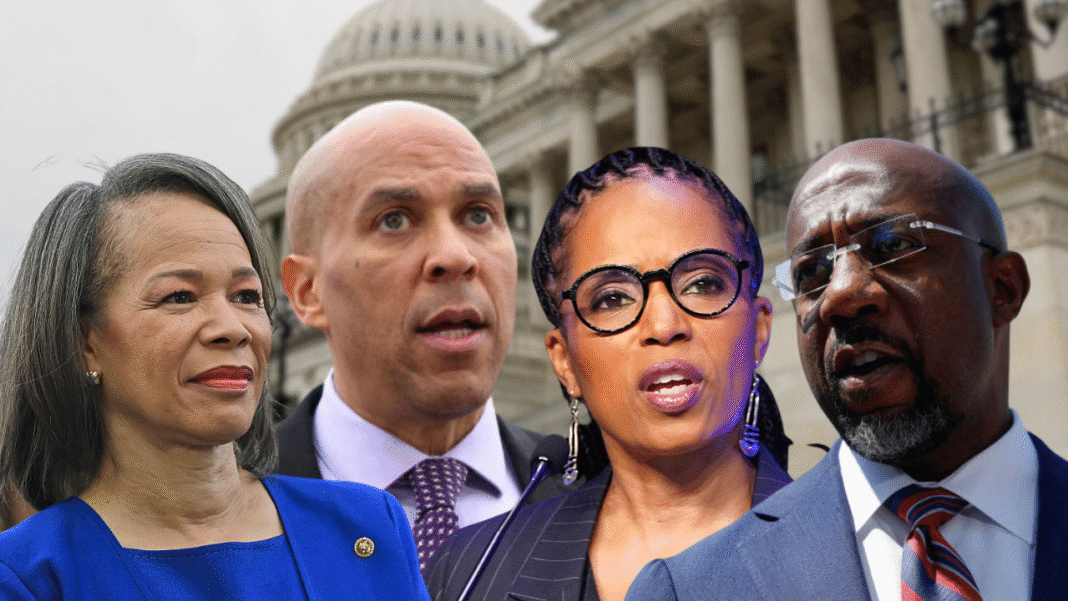The recent division within the Democratic Party highlights a significant moment in U.S. politics, especially after a historic 40-day government shutdown. This standoff not only affected federal employees but also left millions of American families without vital services like SNAP benefits. A surprising twist came when eight Senate Democrats broke ranks to align with Republicans in a bid to reopen the government, creating a rift that has implications for both party unity and the impending elections.
Initially, Democrats stood united in their demands for a resolution that would reinstate health care subsidies under the Affordable Care Act (ACA). The urgency was palpable, especially given estimates that premiums could substantially increase by 2026. The expectation was that the party would leverage their position to secure the necessary funding to protect vulnerable Americans from surging health care costs.
However, the moderate Democrats who opted for a compromise introduced a continuing resolution that ensured a government reopening, but postponed the crucial discussions around the Obamacare tax credits until December. This decision was met with strong opposition, particularly from the U.S. Senate’s Black members, who all voted against the measure. The dissent highlighted a stark difference in priorities, emphasizing the need for immediate action versus the willingness to negotiate in a protracted political landscape.
Senator Cory Booker of New Jersey was vocal about his resistance to the deal, stating his commitment to not back any funding bill that compromises healthcare affordability for his constituents. His statement underscored the stakes involved, calling on his colleagues to prioritize the pressing needs of everyday Americans over temporary political solutions.
Echoing this sentiment, Senator Raphael Warnock of Georgia articulated his discontent with the bipartisan agreement, arguing that it fell short of providing necessary relief for millions facing skyrocketing premiums. As a prominent figure in both the political and moral landscape, Warnock’s stance reflects broader concerns about health care accessibility during a critical economic juncture.
In terms of statistics, the effects of the government shutdown were multifaceted. According to the Kaiser Family Foundation (KFF), there was an alarming projection that Obamacare premiums could spike by as much as 114%, a staggering increase that would significantly impact healthcare affordability for countless families. This fact alone has motivated many senators to continue advocating for legislative solutions to mitigate the financial strain on their constituents.
Senator Lisa Blunt Rochester from Delaware reinforced this argument, emphasizing the urgent need for Congress to tackle the affordability crisis head-on. Her call to action stresses the importance of extending ACA tax credits as a lifeline for families in need. However, she expressed skepticism regarding the Republicans’ commitment to this cause, casting doubt on their previous promises and track record.
The pressure to act was palpable among the moderate Democrats who aligned with Republicans, fueled by the visible repercussions of the shutdown on households and the economy. The airline industry, for example, experienced disruptions that underscored the far-reaching consequences of political gridlock. In the face of such distress, the divide between immediate relief and long-term solutions illustrated the complexities of governance in a deeply polarized political environment.
Moreover, the Black senators standing united against the deal criticized not only the bill but also the broader ramifications of the shutdown. Senator Warnock pointedly criticized President Trump and Congressional Republicans for the unnecessary pain inflicted on their constituents, highlighting the disproportionate impact on vulnerable communities. Such statements reflect a commitment to justice and equity in the political discourse.
Senator Angela Alsobrooks of Maryland articulated a sense of urgency regarding her constituents’ struggles, which have been compounded by rising costs and political mismanagement. She referenced the “draconian” measures that characterized the previous administration’s approach, illustrating how these decisions have led to real-world consequences for everyday Americans struggling to make ends meet.
Blunt Rochester, while relieved to see the government reopen, expressed disappointment over the manner in which negotiations unfolded. She criticized the deal for lacking genuine long-term solutions to the health care crisis and highlighted the role of Republican leadership in perpetuating chaos during significant moments of need.
This chapter in U.S. politics serves as a stark reminder of the ongoing challenges within the Democratic Party and the broader political landscape. The balance between immediate relief measures and sustainable solutions continues to be a contentious topic, one that encapsulates the struggles lawmakers face in responding to the urgent needs of their constituents while navigating a fractured political arena.



